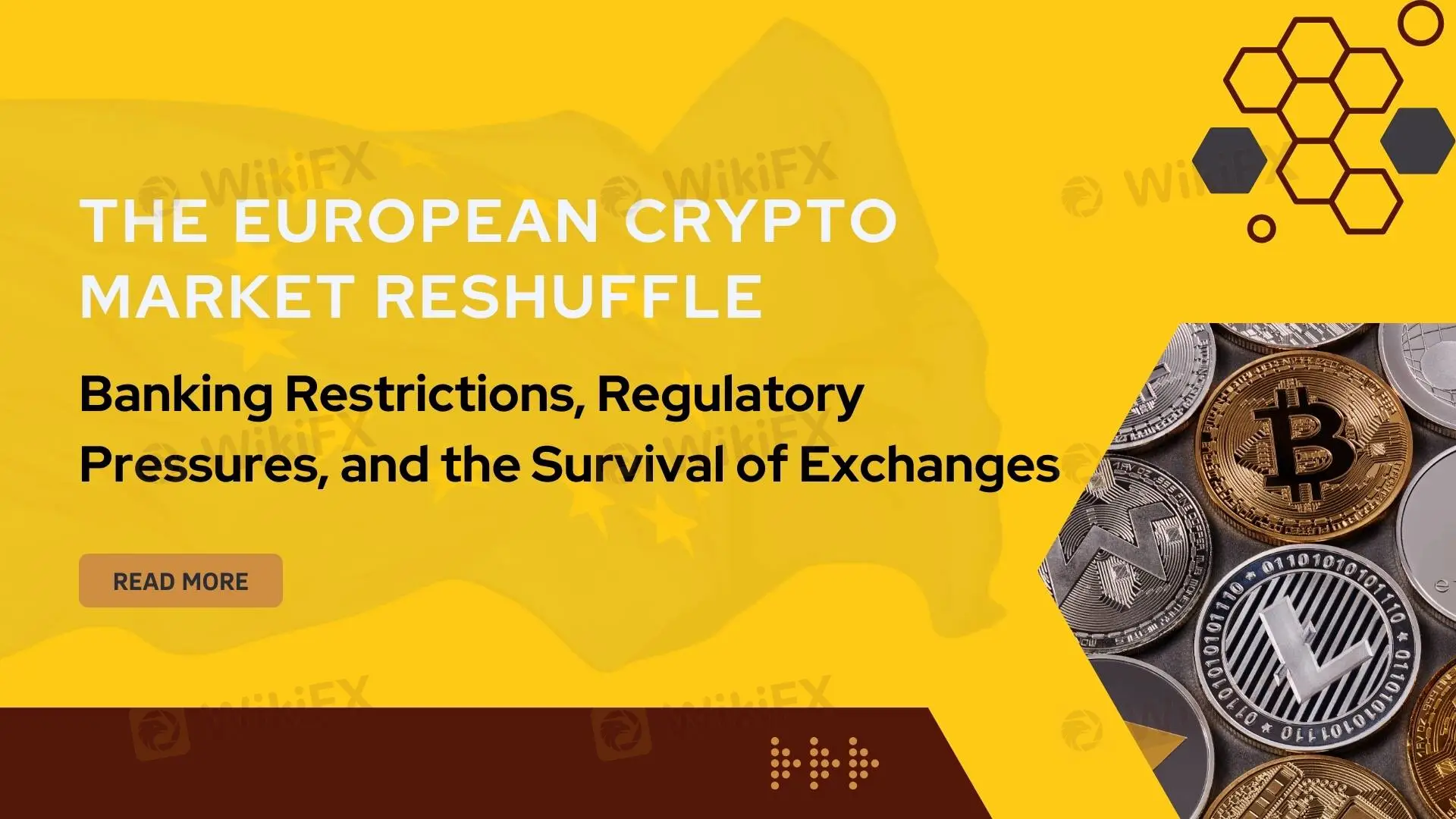简体中文
繁體中文
English
Pусский
日本語
ภาษาไทย
Tiếng Việt
Bahasa Indonesia
Español
हिन्दी
Filippiiniläinen
Français
Deutsch
Português
Türkçe
한국어
العربية
European Crypto Market Shakeup: Banking Limits, Regulatory Pressures, and Exchange Survival
abstrak:Portugal’s BiG bank blocks fiat transfers to crypto platforms. European crypto platforms face mounting challenges amid regulatory changes.

One of Portugal‘s leading banks, Investimentos Globais (BiG), recently announced it will block customers from transferring fiat currencies to cryptocurrency platforms. In its statement, BiG explained that this decision aligns with regulatory guidelines issued by the European Central Bank (ECB), the European Banking Authority (EBA), and the Portuguese Central Bank regarding the risks associated with digital assets. The policy also aims to ensure compliance with the country’s Anti-Money Laundering (AML) and Countering the Financing of Terrorism (CFT) laws.
This decision has garnered significant attention, not only because BiG is a key financial institution in Portugal managing €7 billion in assets but also due to its implications for the crypto industry. While other banks, such as Caixa Geral de Depósitos, still permit fiat transfers to crypto platforms, BiGs policy reflects the increasing regulatory pressure on the digital asset sector.
Attitudes of European Governments, Banks, and Exchanges
1.Government Regulatory Upgrades
In recent years, European governments and regulators have adopted a stricter stance on digital assets. The introduction of MiCAR (Markets in Crypto-Assets Regulation) established a unified regulatory framework for the European crypto market, aimed at enhancing investor protection, combating money laundering, and promoting market transparency. This regulation raises the compliance bar for Crypto Asset Service Providers (CASPs) and mandates strict monitoring of funds related to digital assets by banks.
2.Banks Risk Mitigation
For banks, cryptocurrency‘s volatility and its potential association with risks like money laundering and illicit financing are significant reasons to restrict transactions. BiG’s policy likely reflects compliance pressures and concerns about regulatory penalties. In contrast, banks such as Caixa Geral de Depósitos have yet to adopt similar measures, highlighting the differing stances among European banks on crypto-related activities.
3.Exchanges Responses
Crypto exchanges responses to regulation vary depending on their size and market strategy. Larger exchanges, such as Coinbase and Kraken, tend to embrace compliance, viewing new regulations as an opportunity to expand market share. In contrast, smaller or non-compliant exchanges face survival challenges, with some forced to exit the market.
Crypto Platforms Reacting to European Regulations
The evolving regulatory environment in Europe has prompted many exchanges to adapt their strategies to comply with MiCAR requirements:
- Binance: Announced its exit from several European markets, including the Netherlands and Austria, partly due to failing to secure local regulatory approval.
- Bybit: Plans to cease services for French users in early 2025, citing the high cost of regulatory compliance.
- OKX: Suspended certain stablecoin pairs, such as USDT, in the European Economic Area (EEA) to comply with upcoming MiCAR mandates.
- Coinbase: Limited services for stablecoins that do not meet MiCAR requirements and ended its USDC rewards program in the EEA.
These actions indicate that, while the European market holds significant potential, its complex regulatory environment is prompting some platforms to reassess their strategies in the region.
Disclaimer:
Ang mga pananaw sa artikulong ito ay kumakatawan lamang sa mga personal na pananaw ng may-akda at hindi bumubuo ng payo sa pamumuhunan para sa platform na ito. Ang platform na ito ay hindi ginagarantiyahan ang kawastuhan, pagkakumpleto at pagiging maagap na impormasyon ng artikulo, o mananagot din para sa anumang pagkawala na sanhi ng paggamit o pag-asa ng impormasyon ng artikulo.
Broker ng WikiFX
Exchange Rate






